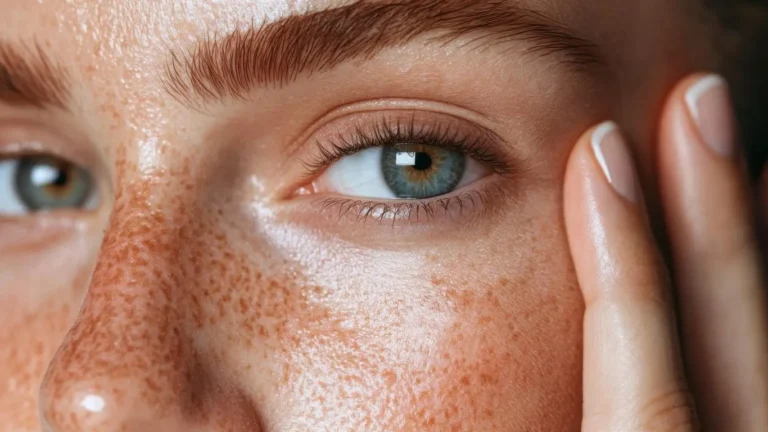Top 7 Best Dog Breeds for Asthma Sufferers That Won’t Trigger Symptoms
If you’re an animal lover like me but also living with asthma, I totally get the struggle. As a pulmonary nurse practitioner, I’ve seen firsthand how much pets can improve our mental well-being—but also how the wrong breed can send your lungs into a spiral. So today, I’m diving into a topic I often get asked about by both patients and friends: best dog breeds for asthma sufferers. Spoiler: yes, you can absolutely have a dog, even with asthma—you just need to be smart about your choice.
Understanding Asthma and Pet Allergens

Before we get into the best dog breeds, let’s clear the air—literally and figuratively—on how asthma and pet allergens interact. Asthma is a chronic condition where your airways are sensitive and can become inflamed when triggered. One major trigger? Pet dander, which includes tiny skin flakes, saliva, and urine proteins. These can float around in your home and, for sensitive lungs, that’s a recipe for wheezing, coughing, and tight chests.
But here’s the thing: not all dogs produce the same amount of dander. And some breeds are naturally easier on the lungs. I often explain to my patients that being smart about your environment and breed selection can make all the difference. In fact, I have patients who manage their asthma beautifully and live with pups that don’t flare things up at all.
What Makes a Dog “Asthma-Friendly”?

There’s no such thing as a truly “hypoallergenic” dog, but there are breeds that are less likely to stir up symptoms. You want to look for dogs that:
- Shed minimally (less fur = less dander flying around)
- Have hair instead of fur (like Poodles—more on them soon!)
- Don’t drool excessively (saliva contains proteins that can trigger asthma)
- Are small-to-medium in size (less surface area = fewer allergens)
When I counsel patients, I usually start with lifestyle questions: Do you live in a small apartment? Are you okay with regular grooming? Do you mind vacuuming a bit more often? Because let’s be real—owning a dog will always come with some degree of work, especially if you’re trying to keep your airways happy.
Top Picks: Best Dog Breeds for Asthma Sufferers

Poodles (Toy, Miniature, or Standard)
Poodles are hands-down one of my favorite recommendations for folks with asthma. These dogs don’t shed much, and their curly coats trap dander instead of letting it float freely. Just keep in mind—they do need regular grooming, but honestly, I see that as a good excuse to pamper your pup.
Bichon Frise
This little fluff ball is a popular choice in homes with asthma or allergies. The Bichon Frise has a soft, curly coat that doesn’t shed much, and their playful personality makes them perfect for families. One of my patients with moderate asthma swears by her Bichon—and her spirometry results agree!
Maltese
Small but mighty, the Maltese has long, silky hair that behaves more like human hair than fur. That’s a major win for asthma sufferers. They’re lap dogs through and through—great for apartment dwellers or anyone looking for a loyal cuddle buddy.
Portuguese Water Dog
Yep, the same breed the Obamas chose for the White House. Portuguese Water Dogs have tight, curly coats similar to Poodles and don’t shed much. They’re super active, so they’re best suited for families who love being outdoors. Bonus: they love water and are fun to train.
Yorkshire Terrier
These tiny terriers have hair instead of fur and don’t shed a lot. They’re great companions and don’t need a ton of space, making them perfect for city living. One of my older patients has a Yorkie she carries around in her tote bag—adorable and lung-friendly.
Of course, every dog is an individual, and what works for one asthma sufferer might not work for another. I always recommend spending time with a breed before bringing it home to see how your lungs respond. Kennels or breeders often allow a trial visit, which I think is super helpful.
More Breeds That Are Easy on the Lungs

Shih Tzu
Don’t let the royal look fool you—Shih Tzus are one of the more asthma-friendly breeds out there. Their long, flowing hair doesn’t shed like regular dog fur, and they tend to produce less dander overall. I’ve seen several patients with mild asthma do just fine with a Shih Tzu, especially when they stay on top of grooming.
Havanese
The Havanese is another great small-breed option. These pups are affectionate, great with kids, and relatively low on the allergen scale. A friend of mine who has asthma and two young kids swears her Havanese is easier on her lungs than her houseplants! Again, regular brushing and grooming is key here, but totally worth it for a snuggly, asthma-friendly buddy.
Basenji
Now, here’s an underrated pick—Basenjis are sometimes called “barkless dogs,” and while that’s not totally true, they are very quiet. What really sets them apart is their super short coat and their cat-like grooming habits. They’re naturally clean, don’t smell much, and shed very little. I actually had a patient who did a two-week “trial run” with a Basenji through a breeder and was amazed at how well she tolerated it.
How to Manage Your Environment for Asthma and Dogs

Okay, so let’s say you’ve picked your dream breed—but owning a dog when you’ve got asthma isn’t just about the breed itself. You’ve got to set up your home and habits in a way that supports your lungs.
Invest in a HEPA Air Purifier
If I could give every asthma patient a gift, it’d be a good HEPA filter. These devices help trap airborne particles like dander, dust, and pollen. I personally use one in my bedroom and another in the living room, and the difference in air quality is noticeable.
Groom Often, But Do It Right
Regular grooming keeps dander levels down. Either brush your dog outdoors or have a groomer handle it. Bathing your dog weekly with a gentle, allergen-reducing shampoo can also help. Just avoid overdoing it—dogs have natural oils in their skin that protect them, and washing too frequently can strip that away.
Keep Dogs Off the Bed (Even If It’s Hard!)
Look, I’m not going to pretend this one is easy—I’ve had patients (and honestly, I’ve been guilty of this too) who swear their pup sleeps better under the covers. But keeping your dog out of the bedroom, especially off your bed, is one of the best ways to create a safe space for your lungs. Even using a separate blanket for your dog if they sit on the couch can help cut down exposure.
Vacuum with a HEPA Filter
Pet dander loves to cling to fabric—carpets, rugs, couches, you name it. I recommend vacuuming 2–3 times per week with a vacuum that has a built-in HEPA filter. It sounds like a lot, but it seriously makes a difference. One of my longtime patients saw a huge improvement in their nighttime asthma symptoms just by vacuuming more regularly.
When to Reconsider (It’s Okay to Say No—for Now)

As much as I love dogs—and trust me, I do—there are times when I advise patients to hold off. If your asthma is poorly controlled, you’re frequently using your rescue inhaler, or you’ve had recent ER visits, it might be best to wait. Your health has to come first. Owning a dog is a commitment—not just emotionally, but physically. And for some people, the cons may just outweigh the pros.
That said, if you’re working with a healthcare provider and have a good management plan in place, there’s no reason you can’t enjoy life with a furry friend. I’ve worked with patients who adjusted their environment, chose the right breed, and actually found their overall well-being improved. Dogs bring a sense of companionship and joy that, in some ways, help us breathe a little easier.
At the end of the day, choosing the best dog breeds for asthma sufferers comes down to doing your homework, being realistic about your own triggers, and setting up your life in a way that supports your respiratory health. And from my own experience? It’s absolutely doable.
What to Do Before Bringing a Dog Home

If you’ve made it this far, chances are you’re seriously considering sharing your home with a pup. And that’s exciting! But before you bring home one of the best dog breeds for asthma sufferers, there are a few final steps I always recommend to patients—and ones I took myself when adopting my own low-shedding furball.
Visit the Breed in Person
Whenever possible, try to spend time with the breed you’re considering. Go visit a breeder, rescue organization, or even a friend with that breed. Stay a few hours indoors to see how your body reacts. I had one patient who fell in love with a Maltese online but started wheezing within an hour of being near one. She ended up going with a Bichon instead and never looked back.
Get an Allergy Test (If You Haven’t Already)
If you’re not sure how sensitive you are to pet allergens, a simple allergy skin or blood test can give you insight. I usually recommend this for my patients with moderate to severe asthma, just to be safe. It can help you make a more informed decision and sometimes even reveal that your asthma isn’t triggered by dogs at all—it could be dust or pollen instead.
Talk to Your Healthcare Team
This step often gets skipped, but it shouldn’t. If you’re under care for asthma, loop your provider into the conversation. As a nurse practitioner, I always appreciate when patients are proactive like this. We can review your asthma action plan, discuss changes in medications if needed, and even suggest preventative strategies that make having a dog more manageable.
Daily Habits That Help Keep Asthma in Check

Once your dog is home, it’s all about maintaining a routine that keeps both of you healthy. Asthma doesn’t have to interfere with the joy of pet ownership—not if you stay on top of things. Here are a few habits I’ve personally adopted and regularly recommend:
- Wipe paws and fur after walks: Especially during allergy season, I keep pet-safe wipes by the door and do a quick wipe-down before my dog hops on the couch.
- Wash pet bedding weekly: Dander builds up quickly in dog beds and blankets. Hot water washes can go a long way.
- Use allergen-blocking covers: These work great for both mattresses and couches. You don’t have to sacrifice your favorite furniture—just make it asthma-proof.
- Don’t skip vet visits: A healthy dog produces fewer allergens. Skin infections, fleas, or diet issues can ramp up shedding and dander.
Tips for Families with Kids and Asthma
Lots of families ask me if it’s safe for their asthmatic child to grow up with a dog. And honestly? With a bit of prep, absolutely. In fact, some studies suggest early, controlled exposure to pets may help build tolerance. But that doesn’t mean throwing caution to the wind.
- Make your child’s room a no-pet zone
- Use air purifiers in play areas
- Teach kids to wash hands after handling the dog
- Encourage outdoor playtime with the pup to reduce indoor allergen buildup
I’ve had young patients do incredibly well growing up with a breed like a Poodle or a Havanese. And as a mom myself, I know how much comfort and joy a dog can bring to a kid with chronic health challenges.
Final Thoughts: Finding the Right Balance
There’s no one-size-fits-all answer here. Everyone’s asthma is a little different, and so is every dog. But with smart choices and the right breed, it’s entirely possible to live in harmony with a furry best friend—even if your lungs are a little fussy.
As a healthcare professional and dog owner, I’m here to say: don’t give up on the dream. Educate yourself, make informed decisions, and you just might find that the companionship, joy, and unconditional love a dog brings to your life are well worth the extra effort.
References
- American Academy of Allergy, Asthma & Immunology
- Centers for Disease Control and Prevention (CDC)
- American Lung Association
- American Kennel Club (AKC)
Disclaimer
This article is based on personal experience and professional insights from my role as a pulmonary nurse practitioner. It is intended for informational purposes only and does not replace professional medical advice. Always consult your healthcare provider before making decisions related to asthma or introducing a new pet into your home.

Bianca Nala is a compassionate Nurse Practitioner with a strong background in primary and respiratory care. As a health writer for Healthusias.com, she combines her clinical expertise with a talent for clear, relatable storytelling to help readers better understand their health. Bianca focuses on topics like asthma, COPD, chronic cough, and overall lung health, aiming to simplify complex medical topics without losing accuracy. Whether she’s treating patients or writing articles, Bianca is driven by a single goal: making quality healthcare knowledge accessible to everyone.






